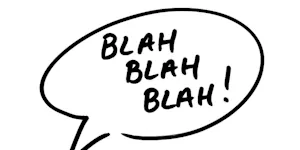What Makes This Word Tick
"Eloquent" is like a fine wine of the vocabulary world; it speaks of someone who can express themselves with clarity and persuasiveness. This word implies not just speaking well, but doing so in a way that moves or captivates an audience.
If Eloquent Were a Person…
Eloquent would be the charismatic dinner party guest who captivates everyone with their stories yet listens with equal interest. Always with the right words, this person leaves you thinking long after they’ve left.
How This Word Has Changed Over Time
Originally from the Latin "eloquentia," meaning fluency, eloquent has always been associated with skillful speaking. In modern times, it's broadened a bit to encompass any form of expressive communication, including writing and even non-verbal cues.
Old Sayings and Proverbs That Use Eloquent
There aren't many old sayings that directly use "eloquent," but its spirit finds a home in things like "actions speak louder than words," where the idea is that truly powerful expression goes beyond mere words.
Surprising Facts About Eloquent
Eloquent was once used almost exclusively to describe speech and sermons, so its application now to writing and even gestures is a sign of linguistic evolution. Famous figures known for their eloquence include Martin Luther King Jr. and Winston Churchill.
Out and About With This Word
You might find "eloquent" gracing the pages of literary critique or as part of commentary during a riveting political debate. It's also a word that's right at home in praise, such as describing a piece of moving music or artwork.
Pop Culture Moments Where Eloquent Was Used
In pop culture, this word is often used to describe actors or characters who seamlessly deliver stirring speeches or dialogues. Think of actors like Morgan Freeman or Meryl Streep, whose performances often echo with eloquence.
The Word in Literature
Eloquent appears in many classical works, often to describe characters with a knack for speech-making. Shakespeare’s plays, rife with stirring monologues, provide ample turf for its use. It's a word that suits eloquent narrators or compelling characters.
Moments in History with Eloquent
The Gettysburg Address by Abraham Lincoln is a quintessential moment of eloquence in history. Though the word may not appear in the text, Lincoln’s concise and powerful message embodies the essence of eloquence.
This Word Around the World
In French, "éloquent" carries the same meaning. In some Asian cultures, eloquence might be viewed through actions, maintaining harmony and respect with less focus on verbal expression. Each culture has its own spin on what it means to communicate effectively.
Where Does It Come From?
"Eloquent" has roots stretching back to the Latin term "eloquentia," which directly translates to "fluency" and "effectiveness in speaking." The word entered the English language through Middle French, maintaining its emphasis on graceful speech.
How People Misuse This Word
People sometimes use "eloquent" just for someone who talks a lot, but it's not about verbosity. True eloquence is about meaningful, impressive communication, not just filling space with words.
Words It’s Often Confused With
Articulate: While both suggest clarity, "articulate" focuses on clear speech without the persuasive or moving component.
Loquacious: This describes someone who talks a lot, not necessarily with the polish that "eloquent" implies.
Fluent: Indicates ease in speech, similar yet lacking the emotional or persuasive impact.
Additional Synonyms and Antonyms
Synonyms include articulate, persuasive, and expressive.
Antonyms include inarticulate, mute, and taciturn.
Want to Try It Out in a Sentence?
"He was known for his eloquent speeches that left audiences both inspired and reflective, stirring even the most indifferent souls."
















